Forum: Is President Trump a Racist?
Our panelists weigh in on Donald Trump's response to Charlottesville, whether or not he holds racist views, and the symbols of the Confederacy.

The horrific and, ultimately, tragic events that occurred in Charlottesville, Va., on Saturday, August 12, in which White Supremacists marched on the stately college town, under the guise of protesting the city’s decision to remove a statue of Confederate General Robert E. Lee, will go down in history as one of our country’s darkest modern moments. The Alt-Right’s “Unite the Right” rally was less about saving a monument and more about the angry spewing of vile, hateful rhetoric, punctuated by Nazi flags, Tiki torches, and bone-chilling chants of “blood and soil” and “Jews will not replace us.” It resulted in the death of Heather Heyer after James Alex Fields, Jr., an apparent White Supremacist, allegedly plowed his car at high speed through a crowd of protesters gathered to oppose the racist-fueled rally.
President Trump had the opportunity to rise above his typically craven, inner-pettiness and finally assume the persona of a dignified, respected President — if only for a moment. He had the opportunity to decry the hate, to renounce White Supremacy fully and without question or hesitancy, to give absolutely no credence to the racist groups who have come to view this current President as an endorser of their wrongful cause.
To say President Trump squandered his chance is a vast understatement — he caved to his base, offering half-baked comments on Saturday that blamed “both sides” for the violence. After a significant backlash, he attempted to correct course with a speech on Monday, August 14, delivered in a tone best described as begrudgingly detached, as though he were a juvenile forced by his parents to apologize to a neighbor for egging their house. (“Apologize, or no Fox News for a month!”)
The band-aid did not remain on long. The real Donald Trump emerged the following day in a fit of off-the-rails rage, bluster, and ego, during an impromptu press conference at Trump Tower in Manhattan. Watching the president double down on his initial sentiments from Saturday and eradicate his Monday comments in his all-too-familiar bullying, brash, unhinged way was both mesmerizing and appalling. He showed the nation — and the world — that he truly has no inner-moral compass. Tuesday, August 15, 2017 will go down in history as the day President Trump relinquished his moral authority as the leader of the free world.
While none of this should come as a surprise, all of what is happening — including Trump’s not-so-tacit validation of racist groups — demands ongoing deeper discussion and analysis. It calls for all of us to reflect on our values as citizens of the United States. What do we value as a people? What are we willing to endure from leaders elected to serve all of us, not a microcosm of the society, and certainly not their self-interests? How do we course correct?
We turned to our regular Forum panelists to weigh in on the matter — specifically Trump’s response to Charlottesville, the idea of whether or not he holds racist views, and the symbols of the Confederacy, which, historical or not, are a point of searing pain to a huge swath of our fellow citizens, a bitter, brutal reminder that we as a country did not always see all people as created equal. And that many of us still don’t.
Randy Shulman
Editor-in-Chief
How did you feel about President Trump’s response to last weekend’s tragic events in Charlottesville that there is violence on “both sides”?
Alicia Garza, co-founder, Black Lives Matter: I was disgusted when I heard Trump’s response to the tragic events in Charlottesville — but I wasn’t surprised. Trump has a long history of viciously attacking Black people, Latinos, immigrants and women. Four young men of color spent between 6 and 13 years in prison for a crime they didn’t commit, in part because of Trump’s opportunism where he used his resources to take advantage of a tragedy and a heinous crime to whip up hysteria about “predators.”
The case was called the “Central Park Five,” and to my knowledge, Trump has never apologized for his role in sending four young men who had their whole lives ahead of them to prison for a crime they didn’t commit. So when I see the now President Trump using the same opportunism to justify White Supremacists marching through the streets with Tiki torches, chanting “Jews will not replace us” and mowing innocent people down with their cars, I’m disgusted but not surprised. There is no “both sides” to racism, bigotry, anti-Semitism and hatred. Trump is using the same tactics of fear-mongering and racial stereotypes to try and draw an equivalency between Black Lives Matter and all people who work to fight hatred and injustice — and Neo-Nazis who believe that Jewish people are an inferior race that must be eliminated, along with White Supremacists who believe that white people are a superior race and call for violence against Black people, LGBT people, Jewish people, immigrants — basically anyone who isn’t white.
He hides behind Confederate monuments and “changing history and culture” as if it’s neutral, but it isn’t. The Confederacy was the losing side in the Civil War that wanted to preserve the institution of slavery and seceded from the United States in order to fight for that right to keep Black people as slaves. Period. Supporting that is supporting slavery. Quite frankly, his viewpoints are disgusting and belong in the archives of history. I’m embarrassed that he is the President of the United States.
Mitchell Gold, Co-founder, Faith In America: It was his reality. He looks at Fox and other alt-right media so in his mind he’s seen “both sides” were at fault and believes it. Of course, it is ridiculous and insulting.
Shin Inouye, Director of Communications and Media Relations, The Leadership Conference on Civil and Human Rights: President Trump has failed in his role as the moral leader of the nation. It is telling that leaders, from all political backgrounds, have condemned the president for giving the so-called “Alt-Right,” white nationalists, White Supremacists, and other hate groups legitimacy. His repeated statements run counter to the values of justice, equality, and opportunity that we uphold as a country.
Victoria Kirby York, Deputy Director of Advocacy and Action, National LGBTQ Task Force: As a Christian, Black, Lesbian working in the LGBTQ rights movement, the President’s false equivalency language is deeply painful and troubling for all seeking equality and justice. We expect and demand that our elected leaders have moral authority. This President is a complete failure in that regard.
For the communities being attacked right now by White Supremacists across the country — immigrants, Muslims, Jewish people, African-Americans, Latinos, Asian Americans and Pacific Islanders, LGBTQ people, disabled people and all marginalized people — we hear the President’s words as a complete disregard for progress and inclusion. There are no “both sides” when it comes to Neo-Nazis. There is only one side for love, respect, and justice.
There is a silver lining to Mr. Trump’s moral failure, which is more people see it clearly now, and we are coming together in solidarity against it. Last weekend’s protest for equality in Boston, by some estimates at 40,000 strong, show the majority of Americans want progress.
Rich Tafel: It is important to be clear that bigotry is evil, period. I think the question of both sides is beside the point. Yes, the anti-fascist group who travels around the country burning cars and crashing business windows are violent. But the reality is that in Charlottesville, armed militias marched, attacking Jews and Blacks and other groups. Getting into a debate about both sides misses the point that the President and all political leaders should denounce bigotry and hate as a cancer on the nation.
Clarence Fluker: Mr. Trump’s response that there was violence on “both sides” was no different from any other lie he has told, of which he’s told many. I was not surprised by his words as they were consistent with the themes and ugly undercurrents of his campaigning and his governing.
Aisha Moodie-Mills, President & CEO, Victory Fund: Trump’s response to the violence in Charlottesville was pathetic, and only bolstered the enthusiasm of White Supremacists and white nationalists in this country. Racism is a cancer in our society that grows and metastasizes when there is a lapse in moral leadership and hostile extremists feel empowered. Both conditions, sadly, are omnipresent in our country right now, given a president who ran on racist attitudes toward people of color, immigrants, and Muslims, and who now fails to appropriately condemn acts of terror like we saw in Charlottesville.
Gregory Angelo, President, Log Cabin Republicans: Ours is a nation in need of healing. Pronounced divisions in our nation that began during the 2016 election have only been magnified in the time since the Inauguration. The President has a duty to mend divisions, console the afflicted, and unify the nation. In that respect, his initial response to the calamity in Charlottesville came up short.
Sharon McGowan, Director of Strategy, Lambda Legal: While the hatred displayed in Charlottesville is not new, the explicit endorsement of white supremacy from the White House is a moment in our nation’s history that we will all carry with us for the rest of our lives.
Lambda Legal has a lot of hard work ahead as we think about what it means for us as an organization to resist white supremacy, but now more than ever, it is clear that this is perhaps the most important work that we are called upon to do. There are no quick fixes here, and we must renew our commitment each and every day to this goal if we hope to build a more perfect union.
Ryan Bos: Number forty-five’s response underscores yet again the challenges and issues centered on race, culture, civility, and justice that continue to face our country and society. I am angry and frustrated that I am not able to look to our forty-fifth President for inspiration, support, and leadership. We need leaders who are not afraid to clearly, concisely, and consistently state that our country has no room for hate, racism, homophobia, and transphobia.
Nicholas Benton, DNC LGBT Advisory Board, LGBT Democrats of Virginia: It was more a self-revelation by Trump than anything else. He revealed in a new way his prejudice in favor of the Neo-Nazis/White Supremacists. This is not new to those who’ve followed him over time, specifically his championing the “birther” cause claiming that Obama was not born in the U.S., his holding Bannon and others of his ilk close to him, and the Nazi-era tactic of radical lying and blaming the press for failing to parrot his lies.
Sterling Washington: By stating there was violence on “both sides,” the President essentially pandered to the White Supremacists by suggesting they were defending themselves. This was extremely disrespectful to the late Heather Heyer and so many people injured when James Alex Fields, Jr. [allegedly] drove his car into a group of peaceful protesters. Certainly emotions were high on all sides, but Fields was a self-described member of the Alt-Right/White Supremacist movement.
The President showed a complete lack of leadership in that speech by failing to reaffirm that this country in principle is committed to equality for all. To be clear, the country too often fails to live up to its ideals, but the President failed to even articulate them. Of course, President Trump does not believe that all individuals are created equal, so his remarks were very much in line with his racist viewpoint.
Jose Carrasquillo: The Charlottesville tragedy proved that the current occupant of the White House is an evil man. At a time when we look to our leaders for a moral compass and healing words, he managed a rabid equivocating statement that managed to impart confusion and pain. His coward waffling on our American value system, in full display during his impromptu press conference, was abhorrent. A man that thinks that there are very good people in hateful Neo-Nazi and KKK groups is simply despicable.
What this entire incident has unmasked is not only that Trump sides with white nationalist, but that Republicans, ever since the so called Southern Strategy was implemented, have always vied for voters in these evil groups. They are part of their base. KKK, Neo-Nazi, white nationalists and other racist groups are nothing but a basket of deplorables. On that score Hillary Clinton’s assessment was spot on.
Terrance Laney: It is incredibly frustrating that our public discourse about race and white supremacy in the country is so convoluted that too many people accept “both sides-ism” as a response to acts of horrific violence and terror. There is no such thing as a good white supremacist, a good Nazi, or a good person who believes that we need ethnic cleansing to save white people from an imagined enemy.
Zar, Production Director, The Ask Rayceen Show: My response was what it is every time he says something inane or asinine — “You people elected a crazy person to be the president.”
Do you think President Trump holds racist views?
Moodie-Mills: I don’t say this lightly, but President Trump is a racist. He ran a campaign promoting white nationalist and racist policies — where crowds of supporters chanted anti-Mexican slogans that then candidate Trump urged on. He prides himself on ignorance of our communities, and then refuses to do what every president for more than 50 years found obvious: condemn the KKK and Neo-Nazis. Unfortunately, we have a president working on behalf of white, wealthy, straight men – the rest of us are on our own.
York: Mr. Trump has a long resume of racist actions, from being sued for housing discrimination to attacking immigrants in his campaign launch. Mr. Trump is pandering to those who perpetrate violence and hate to build tyrannical support for his personal agenda. It is sad and scary for me to admit that the man who leads our country has made it permissible for others to hate me and act on that hate based solely on the color of my skin. We must all organize in our communities and across lines of difference to resist and to lead.
Inouye: What is clear is that, in his failure to unequivocally condemn them, the president has given tacit approval to those who espouse hatred and bigotry. Moreover, his administration pushes policies of division, such as the Muslim ban, the transgender service member ban, demonizing immigrants, and curtailing civil rights.
Fluker: Mr. Trump uses his rhetoric to stoke the flames of racists and deploys appointees across the federal government to design and implement policies and regulations that harm and further disenfranchise people of color. Is he a racist? I don’t know. Does he support policies that sustain and promote institutional racism? Absolutely. Of that, I am sure.
Gold: Yes. But I think he represents the Republican Party. They are racist by their actions. Their agenda has a dramatic impact on the continuation of the systemic racism that exists.
Angelo: I don’t know President Trump personally, so I can’t speak to his heart — but I do know quite a few people who do, including a number of African-American individuals who have been in President Trump’s orbit for years, and who continue to stand by him as steadfast supporters who feel those branding him a racist are trafficking in smears.
Garza: Yes, I think President Trump holds racist views — in fact, I know it and anyone who watched him during his campaign should know it. Trump uses coded language to whip up fear and hysteria about “difference” — whether it be about Muslims or Mexican immigrants.
I don’t think a lot of people understand how racism actually operates. We turn on the television and we see people marching in the streets with tiki torches and everyone but this President understands that as racism. But we don’t understand the way that racism is embedded in every system and structure in this country.
I’ve been hearing people say things like, “Oh, so and so isn’t racist — they’re a good person, have a good heart, etc.” But racism has nothing to do with whether or not someone is a good person, or if you like them. Racism is about power and distribution of resources. Racism is white people being 81 percent of the current Congress despite being 62 percent of the population in the United States. Racism is drug laws that penalize Black people differently than white people. Racism is 2.3 million people in prisons and jails across the country, and Black people being incarcerated at 5 times the rate of white people.
In Maryland, the prison population is 72% Black, despite Black people being only 31% of Maryland’s population. That’s racism. Donald Trump supports policies and practices that disproportionately target Black people and people of color, so yes, he holds racist views. He also refused to consistently condemn Neo-Nazis (first he wouldn’t, then he did, and then he took it back, which I think is the most authentic of his positions), so I’d say he holds racist views. He also didn’t believe that President Obama was born in the United States. So there’s that.
It’s not just about President Trump, though. His administration holds racist views, too. It’s a good thing that Steve Bannon is out of the White House, but he’s still running a major media outlet. Steve Bannon holds racist views. Attorney General Jeff Sessions — who, when he was a U.S. Attorney for the Southern District of Alabama, tried to prevent Black people from voting — holds racist views. These are people who make policy.
McGowan: Donald Trump’s administration has become a haven for people sympathetic to, or, at minimum, apologists for the kinds of groups that brought terror to the streets of Charlottesville. Steve Bannon may have left the White House on Friday, but there is no reason to suspect that this President, who launched his campaign with racist attacks on people of color, will change his tune as long as he is able to find people willing to cheer at his racist applause lines.
Washington: President Trump definitely holds racist views, and has for some time. Twenty-six years before his anti-immigrant campaign rantings, Trump took out a full-page ad in The New York Times to malign the so-called Central Park Five, a group of 5 Black and Latino young men who were accused of raping and assaulting a white, female jogger in Central Park. Trump’s divisive ad, which propagated vitriol in the city and swayed, called for the return of the death penalty and denying the civil liberties of the accused as though they’d been found guilty, even though the trial had not begun.
Trump was mum about the rape and assault of a Black woman that occurred the same night as the jogger crime until he was criticized of potentially biasing the jury pool with racist rhetoric. When the five men were exonerated in 2002 and had their sentences vacated after serial-rapist and murderer Matias Reyes confessed to the crime, Trump doubled down on his belief that the Central Park Five were guilty, despite DNA evidence proving that Reyes was the sole assailant. Three years after his ad in the Central Park case, Trump secretly funded ads that characterized members of a Native American nation in New York as cocaine dealers and criminals, according to a July 25, 2016 article in The Washington Post. He also suggested that many members of the Mashantucket Pequot nation “don’t look like Indians to me.” To be clear, this was part of Trump’s plan to mitigate the competition from the growing Native American casino industry on his nearby properties that were emerging from bankruptcy. Nonetheless, it was racist.
And, in 1973, Trump Management Corporation was sued by the U.S. Justice Department for failing to rent apartments in Brooklyn, Queens, and Staten Island to African Americans. Trump Management Corporation, which was presided over by Donald Trump at the time, settled the case two years later. More recently, Trump was instrumental in popularizing the birther movement lie that President Barack Obama was born in Kenya, questioning the legitimacy of the Obama presidency. This continued lie about President Obama’s place of birth is quite racist.
Moreover, candidate Trump’s attacks questioning the impartiality of Judge Gonzalo Curiel, an Indiana-born judge of Mexican descent, due to his heritage were, in the words of Speaker of the House Paul Ryan, “the textbook definition of racism.” President Trump’s travel ban executive orders targeting predominately Muslim nations with populations comprised mostly or largely of people of color underscore his racist views as do his mischaracterizations of Mexican-Americans as rapists and murderers.
Bos: I do not presume to know someone’s personal truth. What I do know are the words and actions used — and not used — by our forty-fifth President, that perpetuate hate and racist views.
Benton: Absolutely. He was raised by a father who was arrested participating in a KKK rally, a slum lord with utter contempt for his tenants and service providers. Trump was brutally abused by his father and as a result felt compelled to out-Nazi his pro-Nazi father, with help from the same Roy Cohn who was Joe McCarthy’s special counsel.
Zar: There is ample evidence that he probably is, from housing discrimination cases decades ago to the company he keeps as president. I think it’s very possible that he doesn’t think of himself as being racist, which is extremely problematic, troubling, and dangerous.
Laney: Yes, and I believe that the American electorate was warned repeatedly and too many folks obviously choose to ignore the facts. In Feb. 201, he refused to disavow David Duke and to decline the support of the KKK.
Tafel: I think he does — and I think most of us do. There’s always a desire to point the finger at others, but all of us in this country have to wrestle with the inherited evil of judging people based on race and religion. This is particularly true of the way Blacks and Jews have been discriminated against historically. It’s an opportunity to ask ourselves, what racism or anti-Semitism do we need to face in our own life? I think his language, in this case, is sadly more a strategic effort to court a new political base of disenfranchised voters, many who traditionally voted Democrat in the past. He’s said let’s put the Confederate flag in museums, so I think his comments at this time may not reflect what he believes as much as those who he wants to keep as supporters.
Are Republican leaders complicit in promoting racism if they don’t speak out?
Garza: Yes. And not nearly enough of them have spoken out. Republicans made a deal with the devil in selecting Donald Trump as the nominee. They knew exactly what they were working with when they did so. It has long been a strategy of Republicans to use fears and anxieties about race as a way to motivate people to vote. For that, they need to be held accountable. And for God’s sake, yes, every Republican and Democrat for that matter needs to come out and say where they stand on this. Silence is seen as consent.
Moodie-Mills: AIDS activists of the 1980s yelled “Silence Equals Death” because our government refused to acknowledge our community’s existence, fueling homophobia and allowing tens of thousands to die. All leaders today must stand up and speak out against racism and white nationalism — because silence equals death here as well. Allowing racism to receive a national platform and not having our national leaders condemn it only emboldens these hostile forces.
Fluker: Any person serving in the U.S. House or Senate that is not speaking out against the egregious rhetoric and behavior of Mr. Trump is complicit in fostering a disjointed and dangerous social and political climate that ultimately harms all Americans and damages confidence in our democracy. Further, any elected that votes to place judges on courts, put appointees in place, and support policies that sustain rather than destroy institutional racism need to be held accountable for their actions.
York: Anyone who has studied the right wing and Republican campaign machinery knows that they have used racism to motivate and engage their supporters for decades. They have long been complicit in the actions of White Supremacists and need to be called out for it. I am thankful to those who have called it out and are actively working to stop this long standing partnership, but there have not been nearly enough.
McGowan: This is not a Republican or a Democratic issue. Anyone who does not clearly denounce White Supremacy and those who promote it bears some measure of responsibility for the ongoing vitality of these hateful views. To paraphrase a timeless teaching from Judaism, it is not the responsibility of any one person to finish the work of perfecting the world, but no one is free from the obligation to try to do so.
Laney: Yes, but this isn’t a partisan issue, this is a moral issue. Racism needs silence to survive and thrive. When these views aren’t confronted, refuted and denounced they will continue to survive and to spread.
Angelo: Yes. Thankfully, Republicans around the country have stood up and spoken out, denouncing racism and those who traffic in its currency.
Benton: Yes, and while kudos go to the Republicans who have, it is really not an option in our current society. Those who’ve remained silent will pay with their reputations and careers going forward.
Tafel: I think all Americans should be clear in speaking in one voice at times like this against hatred fosters by the boys marching in Charlottesville. Our culture is so polarized that often our first response is to see if we can score some political gain from the situation by demanding the other party speak out.
We saw this same thing after the shooter tried to kill Republican Congressman a few months back. We should all speak out and no one should give any comfort to Nazis, the KKK or skinhead-affiliated groups. I think we are all complicit as the fabric of American life is being ripped, unless we personally engage in building bridges and creating community again.
Washington: As President, Donald Trump is the de facto leader of the Republican Party. As the leader of the party, Trump’s statements could easily be interpreted as the views of the Republican Party. Many of the senior leaders in the Republican Party have spoken out against the President’s racist comments. However, those that don’t speak out leave the impression that they support the President’s racism, which in turn perpetuates racism. In an ideal world, they would not be blamed for President Trump’s racist rhetoric, but the reality is that the Republican Party is widely seen as the more racist of the two major parties. It would be in the party’s best interest for its members to distance themselves from the President.
Zar: To paraphrase Sarah Palin, the Republican Party is “palling around with terrorists” in hopes of pushing their political agenda. The Republicans tolerate bigotry in their ranks, which is the same as endorsing it. Their silence speaks volumes.
What has to happen before elected Republicans actively distance themselves from Trump?
Garza: Elected Republicans won’t actively distance themselves from Trump unless their constituents demand that they do. It has to become politically unpopular to be associated with him. And thus far, that hasn’t happened.
York: Mr. Trump has promulgated violence against women, against People of Color, against immigrants, made a false equivalency between peace activists and Neo-Nazis, and more. If the Republicans cared about moral leadership in the White House, they would have distanced themselves in mass already.
Gold: He will have to have committed a crime. Or he just becomes too embarrassing. They might not like his “braggadociousness,” but his agenda is largely their agenda. So they’ll stand by their man.
Tafel: We are in a period of political disruption like we have not seen in years. Trump, a lifelong Democrat, used the weakened GOP as a path to the presidency. He won by winning over Democrats. He’s building a new coalition. It is isn’t by any definition conservative. It holds few of the traditional Republican views.
Many Republicans on the Hill hoped that the office of the president would steer Donald Trump into a more responsible mode of operation and that they can work with him. They also fear being primaried by Trump-supported candidates and losing their seat. Some Republicans have broken with Trump. Most are waiting to see how it impacts their own future prospects. Not profiles in courage, but politicians follow public sentiment, they rarely lead. At the same time, the Democrat Party has proved ineffective at offering a counter strategy, so the focus will remain on the Republicans to step up.
Fluker: They will only distance themselves when they think he is going to hurt them.
Angelo: I don’t deal in hypotheticals.
McGowan: Only time will tell, but again, this is about more than just partisan politics. This is yet another moment in our nation’s history, a moment that recurs more often than it should, where we must decide not what kind of nation we are or have been, but what kind of nation we want to be.
Washington: In order to distance themselves from Trump, elected Republicans need to hear from a plurality of their constituents that silence is not an option here. Or they need to be questioned by enough media outlets about why they remain tied to the President. Some Republican elected officials — such as Sen. Murkowski, Sen. John McCain, and Sen. Lindsey Graham — have publicly distanced themselves, but so many others need that push.
Moodie-Mills: The president of the United States gave moral equivalence to Neo-Nazis and counter-protesters — even after one of the counter-protesters was murdered. If that is not grounds for distancing themselves, it’s hard to imagine anything will be, unless it will lose them votes on election day. It is imperative we mobilize against these bad actors and defeat them at the ballot box, so tolerance for racism is proven a losing electoral strategy.
Benton: The distancing is happening right now. But as more evidence piles up of the treachery behind Trump’s ill-gotten gains, as the Mueller investigation reveals money laundering and other illegal associations by Trump with his sadistic Russian business “partners,” and the depth of Trump’s “compromises” to the Russians comes forward, soon no one will be able to defend him.
Zar: Republicans will not, but perhaps conservatives will. One of the best things that could happen as a result of this administration is the destruction of the GOP and the end of this two party system foolishness. Conservatives need to reconfigure and regroup. The Republicans should go the way of the Whigs.
Laney: I don’t know. The thought process of the morally bankrupt is beyond my comprehension level.
Germany has confronted its anti-semitic and fascist history with legislation: public signs and demonstrations promoting Hitler and Nazism are illegal. Moving forward, how do you think the U.S. should deal with public references to Nazism and to the Confederacy?
Zar: Free speech is fundamental. Let people wave flags, wear costumes, and say horrible things. But the government should not condone. Confederate statues need to be removed. KKK members and Neo Nazis should not be teachers, police officers, or other public servants. I would like to point out that the racists and bigots for whom we have to look out the most are the ones who smile in our faces.
Garza: Those statues should go in museums — they shouldn’t be public displays of honor. First of all, the Confederacy lost. Second, central to the Confederacy was the preservation of the institution of slavery. We must never forget that as a nation. But to not forget it doesn’t mean we should have statues celebrating Confederate generals. Same with Nazism. None of those things are things we should celebrate or honor. If anything, we should remember them somberly so that we never go backwards.
York: The Civil War was the bloodiest war the United States of America has ever fought. All those who fought and led the confederacy committed treason and should have never been memorialized. The statues that were built and buildings that were named were all done in the name of white supremacy and racism — in the face of the reality of war. Anything promoting treason and a history of treason in this country should be just as illegal as Nazism in Germany.
What’s important to know about this moment, as we face White Supremacists here at home, is that we are actually the majority, and the racists are the minority. They are so fervent in their defensiveness, because they see that progress is leaving them behind. Our modern social justice movements — #BlackLivesMatter, #LoveWins, the struggles for undocumented people, the struggle for healthcare for all — are succeeding in spotlighting and advancing our vision of an equitable and just society. Yes, we go forward getting rid of these hateful symbols, and we go forward by connecting with each other and our shared humanity, and by leaving our racist past where it belongs.
Gold: It is outrageous that anyone should have to look at monuments to traitors or people that supported the inhumanity of slavery. It is particularly outrageous for the ancestors of the oppressed to have to see monuments, street and city names and more honoring the oppressors.
Angelo: The way to combat hateful speech is not to silence it — you combat hateful speech by responding with more speech! Freedom of speech smokes out bigots and allows them to damn themselves by their own words.
Washington: Given America’s commitment to free speech, it would be challenging — and likely unconstitutional — to outlaw signs and demonstrations promoting Hitler and the Nazism. Instead, the majority of citizens need to recommit themselves to diversity and elect public officials that share their commitment to multiculturalism. The Civil Rights Movement of the 1960s was successful in making it unfashionable to be openly racist. One of the challenges since has been in educating people and challenging the more insidious aspects of racism. As we continue to make strides there, the White Supremacists, Neo-Nazis, and Alt-Right will have less and less influence. We are beginning to see this with elected officials voting to remove openly racists representations from public spaces.
Tafel: I think it is a big mistake to forbid speech that I disagree with. I support the speech of those I disagree with and believe it makes America unique. I also think it allows dark ideas into the light of day, where making it illegal drives it underground and often gives it greater power. America fought battles to defeat Nazis and the Confederacy. I am glad our nation is united and that we rebuilt Germany. At the same time, it is important to teach about the evils of these causes and not rehabilitate or pretend they were something good. Teaching history is critical to us learning from mistakes and evolving beyond them.
What struck me about Charlottesville, from what I’ve read, is the fact that armed militias roamed around with guns as if they were the police. I felt the police had obligation to do a better job of protecting people. There’s a fine line between free speech and inciting violence. It’s tricky, but we should allow as much speech as possible while making clear that violence is intolerable.
Fluker: Step one: Acknowledge the real reason the Civil War took place.
Laney: Tell the truth about White Supremacy in this country, even when it is uncomfortable and inconvenient, even when we have to rethink staple heroes of traditional American mythology. We can redeem this country and bring an end to the on-going effects of white supremacy but it must be courageously and honestly confronted.
Inouye: We must learn from our past, and our mistakes. But we need not idolize figures who sought to divide our country and advanced racism in doing so. Remove the symbols of hate, especially from places of honor like the U.S. Capitol. But, more importantly, hate cannot just be removed in symbols — it needs to be removed from our hearts and minds, and our laws.
The opinions expressed above are those of the participants and do not necessarily reflect those of Metro Weekly or its writers and employees. The responses were minimally edited for clarity and consistency.
Add your voice to Forum. Learn how at metroweekly.com/forum.
Support Metro Weekly’s Journalism
These are challenging times for news organizations. And yet it’s crucial we stay active and provide vital resources and information to both our local readers and the world. So won’t you please take a moment and consider supporting Metro Weekly with a membership? For as little as $5 a month, you can help ensure Metro Weekly magazine and MetroWeekly.com remain free, viable resources as we provide the best, most diverse, culturally-resonant LGBTQ coverage in both the D.C. region and around the world. Memberships come with exclusive perks and discounts, your own personal digital delivery of each week’s magazine (and an archive), access to our Member's Lounge when it launches this fall, and exclusive members-only items like Metro Weekly Membership Mugs and Tote Bags! Check out all our membership levels here and please join us today!










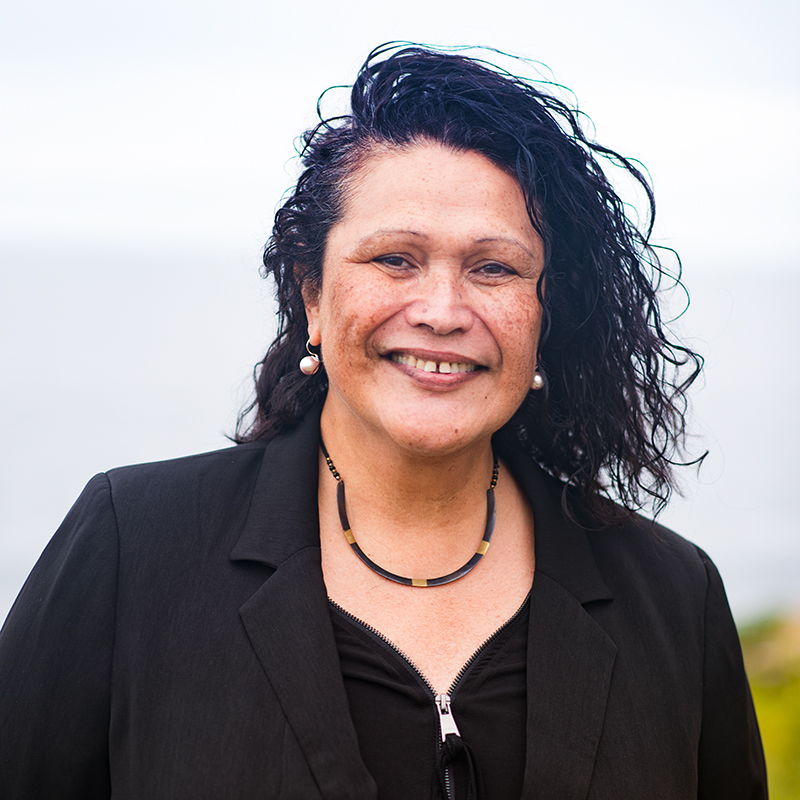












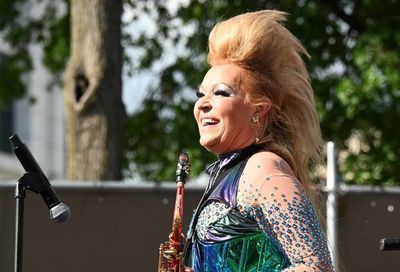
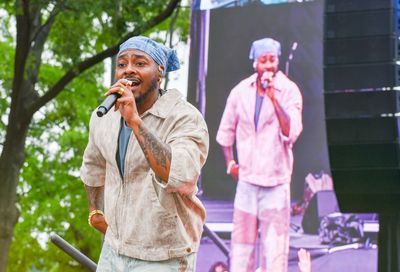

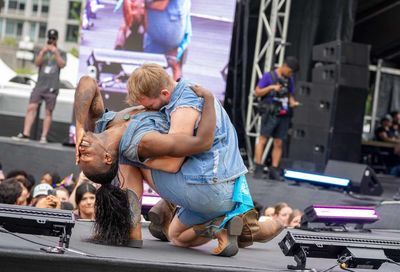




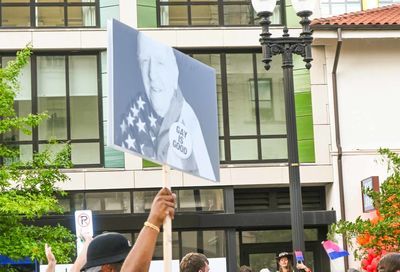
You must be logged in to post a comment.